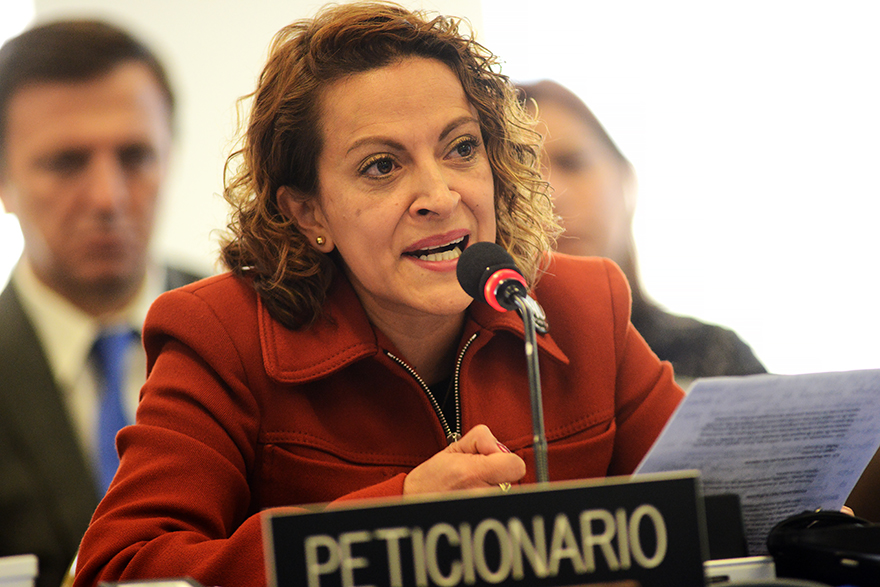On October 12, 2021, the Inter-American Court of Human Rights (IACtHR) published its decision in Jineth Bedoya v. Colombia, declaring the international responsibility of the State of Colombia for the violation of the rights to personal integrity, personal freedom, honor and dignity, judicial guarantees, equal protection, and freedom of thought and expression of journalist Jineth Bedoya Lima. An amicus brief produced at Boston College Law School played a role in the landmark decision.
On May 25, 2000, Bedoya, an investigative reporter, was intercepted and kidnapped while reporting outside of La Modelo Prison in Bogota, Colombia. The crime was committed by paramilitaries who tortured Bedoya for approximately 10 hours. The victim received humiliating and extremely violent treatment, and severe verbal and physical attacks, including rape by several kidnappers.
The case was significant because it was the first to give the IACtHR an opportunity to develop a gender-sensitive affirmative action standard requiring states to guarantee the safety of women journalists in situations of particular risk.
With this in mind, the BC Law International Human Rights Practicum decided to study the case and submit an amicus brief before the IACtHR. Julia Novak ’21—who went on to earn the Award for Clinical Excellence at the BC Law Commencement 2021 for her work on this and other clinic cases— with the help of LLM student Liadan Nunain ’20 wrote the amicus. They did so under the supervision of Professor Daniela Urosa and with the strategic suggestions of Professor Daniel Kanstroom.
The practicum team argued that the State did not adopt appropriate and timely measures to protect and prevent these violations, despite knowing that the journalist was in a risky situation. The lack of protection, which has disproportionately affected women journalists, has led to a vicious cycle of violence and impunity against journalists, facilitating a de facto prior censorship that violates their right of freedom of expression. Therefore, the amicus said, the State has a positive obligation to view the matter from a gender perspective and provide special protection to women journalists.
The BC Law International Human Rights Practicum team was proud to see that their arguments were reflected in the IACtHR landmark decision. They also felt it demonstrated that an experiential-learning team with a global focus could uphold, on the international stage, a pillar of democracy: the right of freedom of expression.
What is worth noting, Urosa said, is the echo of the IACtHR decision in the granting of the 2021 Nobel Peace Prize. It was awarded to journalists Maria Ressa (the Philippines) and Dmitry Muratov (Russia), “for their efforts to safeguard freedom of expression, which is a precondition for democracy and lasting peace.” The committee recognized them as “representatives of all journalists who stand up for this ideal in a world in which democracy and freedom of the press face increasingly adverse conditions.”
The victim in Jineth Bedoya v. Colombia has also carried on the fight for freedom of expression, despite having to leave her country because threats didn’t abate aftert the 2000 attack. Bedoya has received awards from many organizations, among them the CJFE International Press Freedom Award (2000), IWMF Courage in Journalism Award (2001), Secretary of State’s International Women of Courage Award (2012), UNESCO/Guillermo Cano World Press Freedom Prize (2020), and Golden Pen of Freedom Award (2020) by the World Association of Newspapers and News Publishers.
Photo: MediaDefence.org


